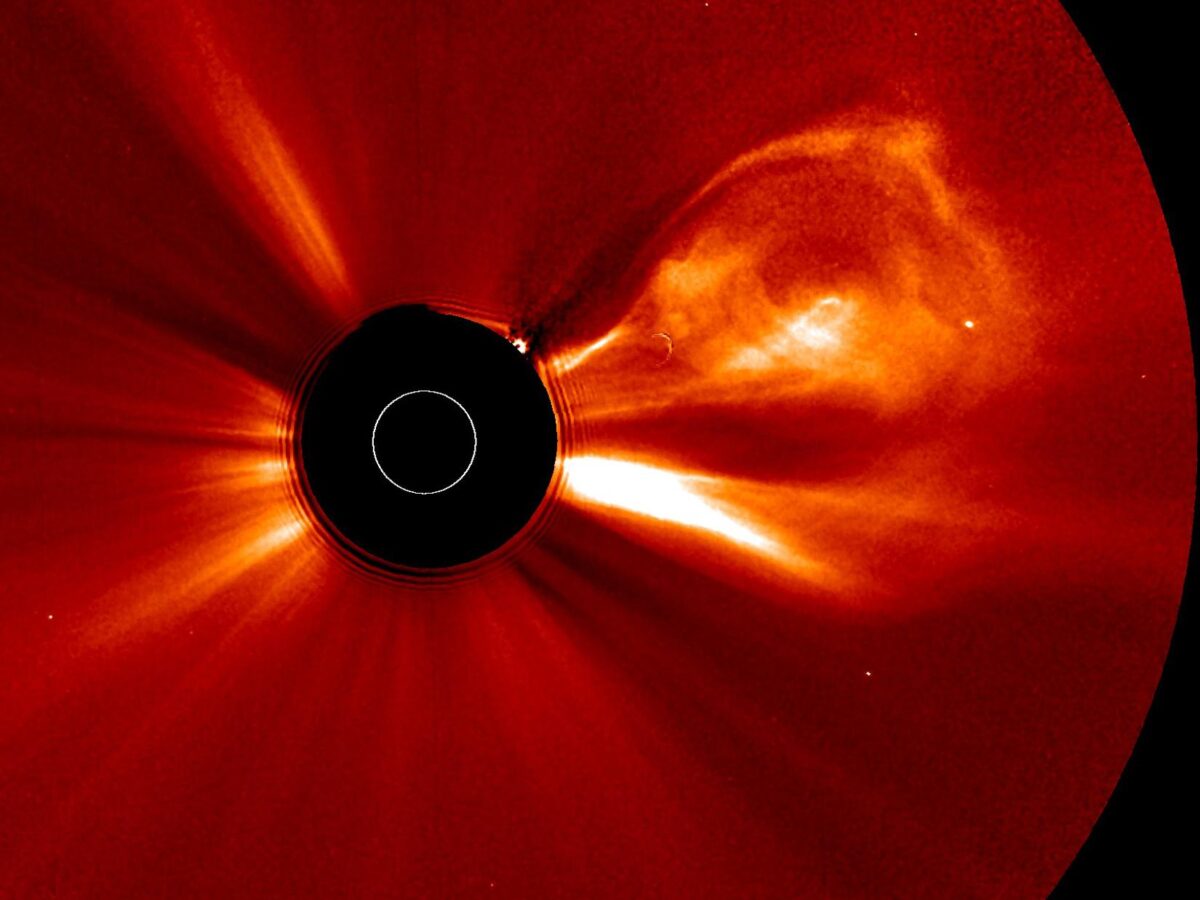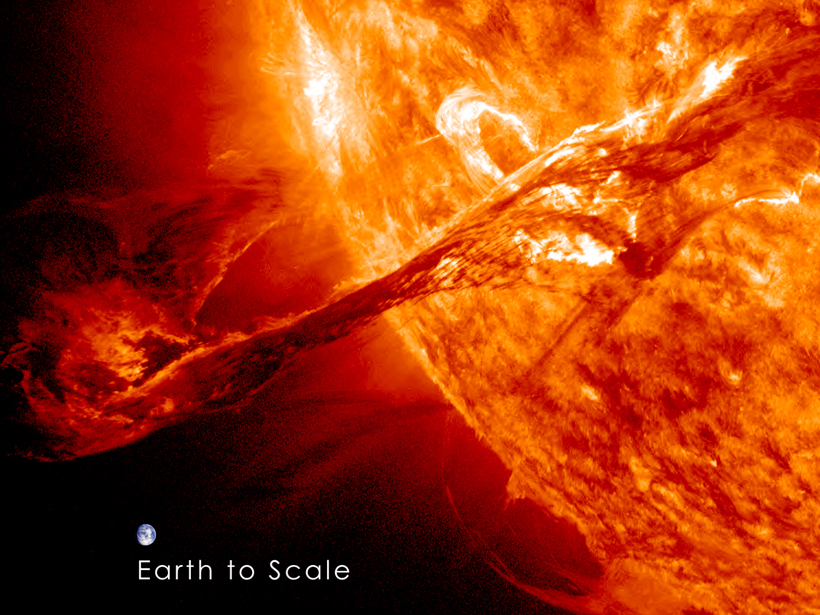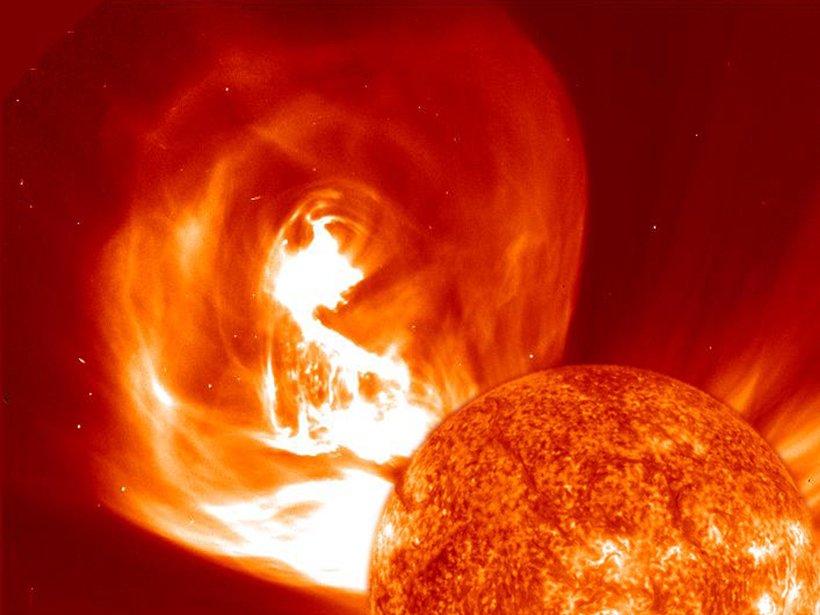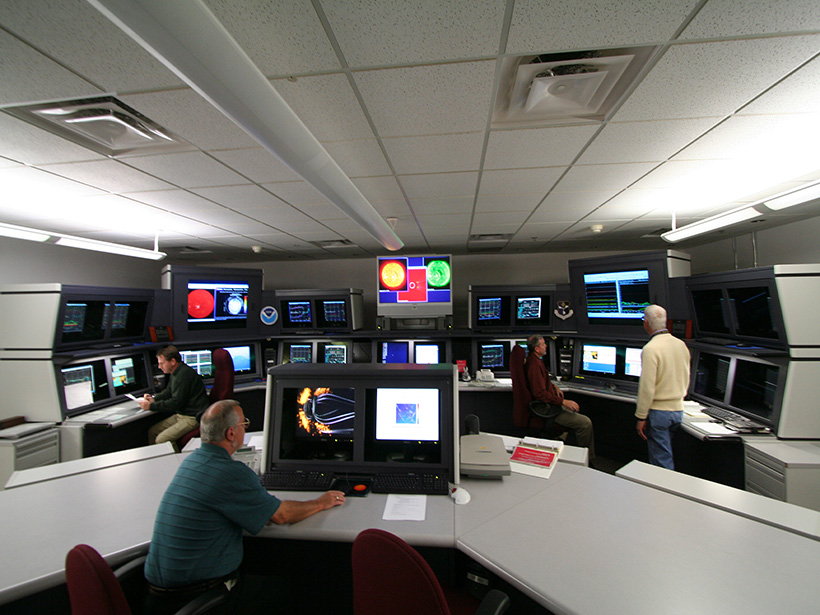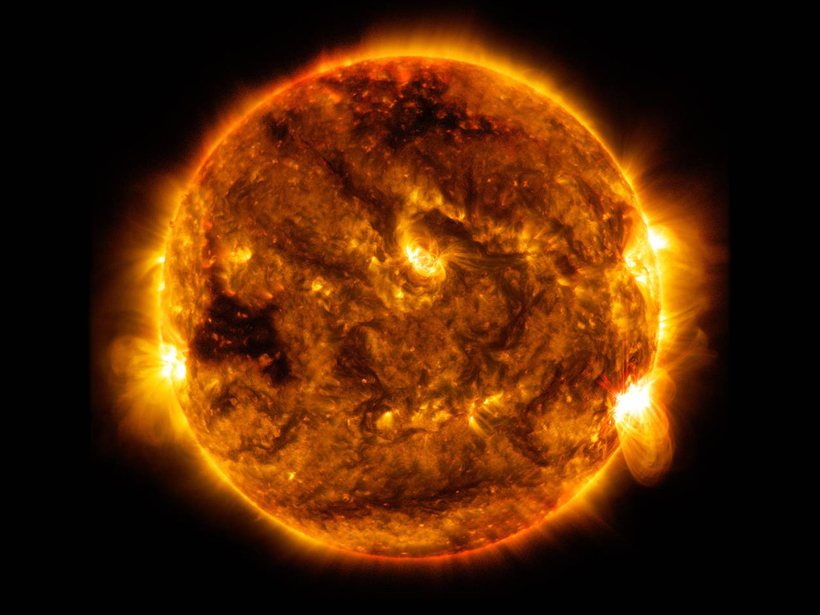Coronal mass ejection forecasting improves with technological developments and increasing availability of data.
space weather (hazard)
Gamma Ray Bursts Leave Their Mark in the Low Ionosphere
Scientists use very low and low-frequency radio signals to detect short gamma ray bursts and their impact on the low ionosphere.
New GPS Satellite Technique to Monitor Ionospheric Disturbances
Researchers are developing better ways to use satellites to understand space weather events that can interfere with technology.
New Solar Wind Model Could Improve Space Weather Forecasts
Real-world data drive a simulation that successfully predicts Sun structures and interplanetary solar wind dynamics.
Space Weather Gains National and International Attention
A heightened understanding of geomagnetic disturbances in a high-tech world encourages policy changes in the United States and abroad.
Electric "Tornadoes" in Space Drive Disturbances Down to Earth
New simulations show how shocks in space can trigger vortexes in Earth's magnetic field, causing magnetic disturbances that are detectable from the ground.
Human Radio Transmissions Create Barrier to "Killer Electrons"
An interaction between radio waves and the Van Allen radiation belts creates a bubble around the Earth that high-energy electrons can't penetrate.
Annual SWEF Raises Awareness Across the Space Weather Enterprise
Reducing our nation's vulnerability to space weather is now a national priority, as conveyed when experts gathered for the 2015 Space Weather Enterprise Forum.
GICs: The Bane of Technology-Dependent Societies
Geomagnetically Induced Currents can cause voltage swings, transformer heating, and reactive power loss in high-voltage power transmission systems.
White House Plan Focuses on Hazards from Solar Storms
Space weather has its day in the Sun, with the administration issuing a new strategy and action plan to increase protection from damaging solar emissions.

